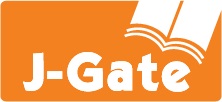Abstract
This impact assessment study of microcredit was conducted by a crossectional data-set drawn from a pool of 200 samples from Puri district of India. A structured pre-tested household schedule was used to gather information from households. The "household" was taken as the unit of analysis; and a comparison between the factual and counterfactual was formed as the base of the study where the statistical means of the target households were compared with that of the control households across various variables. The statistical test of significance was conducted by using z-test. Under the econometric model, probit model was used to understand the determinants of the probability of participation in the Self-help Group based microcredit programmes. The study resulted into positive impact of Self-help Group based microcredits programmes on the household income, saving, employment days, literacy position and reduction in migration. The probability of participation was greatly determined by savings, employment days, days of migration and number of literates of the households.
Recommended Citation
Panda, Debadutta Kumar
(2010)
"Assessing the Impacts of Self-Help Group Based Microcredit Programmes: Non-Experimental Evidence from the Rural Areas of Coastal Orissa in India,"
Management Dynamics: Vol. 10:
No.
1, Article 4: 39-52
DOI: https://doi.org/10.57198/2583-4932.1158
Available at:
https://managementdynamics.researchcommons.org/journal/vol10/iss1/4





